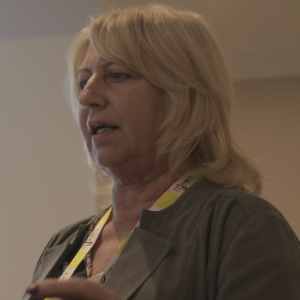Title : Areas of applications and the market of non-linear technologies for restoration and modulation of the dynamics of brain activity and behavior
Abstract:
The theory of ‘Fractality of sensations’ implies that the deficit of nonlinear complexity of the environment naturally leads to abnormal development and aging of the brain (Zueva M.V., 2015). The theory explains the need to restore the complex dynamics of the functional activity in retinal and brain diseases in various situations, which lead to simplification of the pattern of the oscillation activity and structure in CNS. The notions of the theory explain why a healthy brain is characterized by the fractal complexity of its structure and function, while pathological conditions are associated with their simplification. It follows from the theory that the use of fractal and other nonlinear regimes of sensory (photo, audio, etc.) stimulation can promote recovery of the neuronal circuits and activity in the visual system and the brain, including in neurodegenerative diseases and amblyopia by a reactivation of neuroplasticity. Note that even a brief opening of windows of increased plasticity of the adult brain, similar to the sensitive periods in the early development, could serve as a promising target for new therapeutic strategies, since in this time, the effectiveness of any (pharmacological and non-pharmacological) therapy should be improved.
We have a Patent for the Invention of the generator of fractal flickering, in which the sequence of flashes is time-invariant (Zueva MV Spiridonov IN, Semenova NA, Rezvykh S. Patent Russian Federation ?0002549150 from 25.03.15). As well, we created a prototype of this device for testing, in which the self-similar pattern of flashes can be programmed with the adjustable complexity of dynamics. In a limited pilot study of effects of fractal visual stimulation on the electroretinogram of healthy rabbits, preliminary indicated that fractal flickers modulated the function of the rod system and the efficiency of synaptic transmission in the outer plexiform layer of the retina.
We believe that the complex nonlinear structure of stimuli should be regarded as a physiologically appropriate way to normalize the neuronal activity and cognitive function not only in pathology but also in healthy individuals in a variety of situations, where the development of innovative technologies can have not only a social but also a significant economic effect. Numerous studies have demonstrated that the normally functioning brain operates in a state of so-called “Self-organized criticality” to be ready to act at a critical point between order and randomness. Critical systems are associated with a fractal scaling and the presence of long-range correlations in space and time, as well as with the rapid changes in their configurations in response to external inputs. It can be expected that the use of non-linear techniques to restore physical and mental performance after heavy load and effects of stress factors, including in the sport, will help to restore the complex nonlinear dynamics of functional activity, maintaining a high level of criticality and improving the adaptive brain reserve.
Audience Take away:
- The prospective directions of scientific research and fields of future collaborations
- Areas of practical applications of innovative non-linear technologies
- The future market of non-linear technologies
- The real issues on creating user-friendly devices of various designs (such as a stimulator in the form of spectacles), suitable for industrial production.




